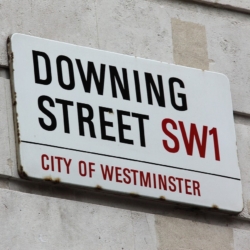March 4, 2024
New plans for public sector productivity ‘will deliver up to £1.8 billion worth of benefits by 2029’
 The UK’s Chancellor of the Exchequer Jeremy Hunt has outlined plans to improve public sector productivity that the government claims will deliver up to £1.8 billion worth of benefits by 2029. The statement focuses on public sector productivity because the government says it is “an alternative to accepting an ever-increasing bill for public services as [it] sticks to its plan to move on from the high spending and high tax approach that was necessary to get the UK through the shocks of Covid and Russia’s invasion of Ukraine. A new focus is needed on the long-term decisions required to strengthen the economy and give people the opportunity to build a wealthier, more secure life for themselves and their family.”
The UK’s Chancellor of the Exchequer Jeremy Hunt has outlined plans to improve public sector productivity that the government claims will deliver up to £1.8 billion worth of benefits by 2029. The statement focuses on public sector productivity because the government says it is “an alternative to accepting an ever-increasing bill for public services as [it] sticks to its plan to move on from the high spending and high tax approach that was necessary to get the UK through the shocks of Covid and Russia’s invasion of Ukraine. A new focus is needed on the long-term decisions required to strengthen the economy and give people the opportunity to build a wealthier, more secure life for themselves and their family.”
“We shouldn’t fall into the trap of thinking more spending buys us better public services,” says Hunt. “There is too much waste in the system and we want public servants to get back to doing what matters most: teaching our children, keeping us safe and treating us when we’re sick.”
According to the Office for Budget Responsibility, returning to levels of productivity pre-pandemic could save £20 billion a year. This will help manage the size of the state in the long term, whilst maintaining public service quality and delivering savings for taxpayers.
The plan includes a total £800 million investment by 2029 to deliver what the government says will be £1.8 billion worth of productivity benefits.
This includes:
- Saving up to 55,000 hours a year of administrative time in the justice system through digitising jury bundles, new software to streamline probation decisions and provide probation officers with more robust data on whether offenders are safe to release. £170 million will be invested into the justice system to support this.
- Reducing Local Authority overspends on children’s social care places across England by making 200 additional child social care places available and reducing local government reliance on costly emergency places for children. £165m of funding will be used to create the additional places to help tackle last year’s overspend of £670 million.
- Saving £100m for the public purse by reducing fraud thanks to expanding the use of AI across government to make it easier to spot and catch fraudsters, funded by £34m.
- Accelerating delivery of DWP’s existing programme to modernise DWP services and move away from paper-based communications. This will be funded through a £17m commitment.
- Cutting the time it takes for planning officers to process applications by 30 percent through a new AI pilot.
- Ensuring more children with additional needs get the support they need to thrive through a £105m to fund an additional wave of 15 special free schools.



















